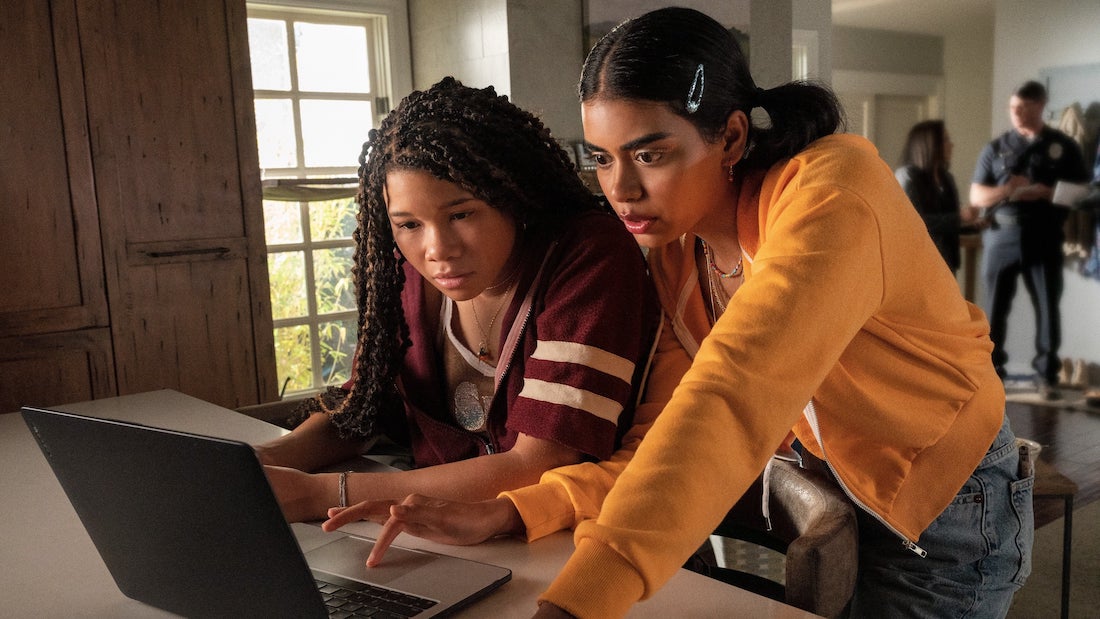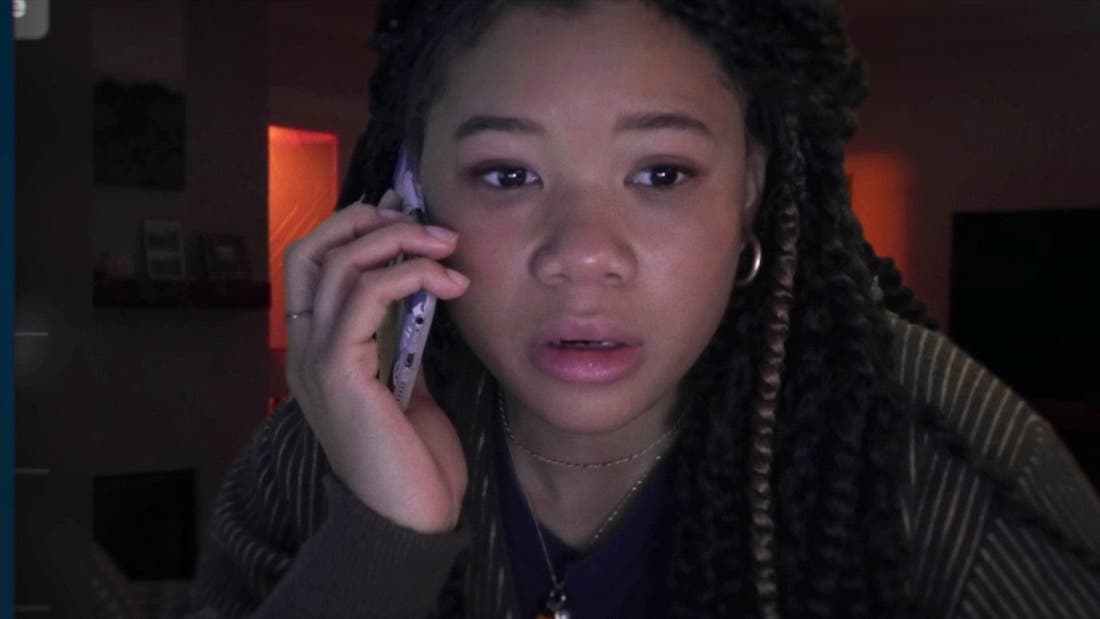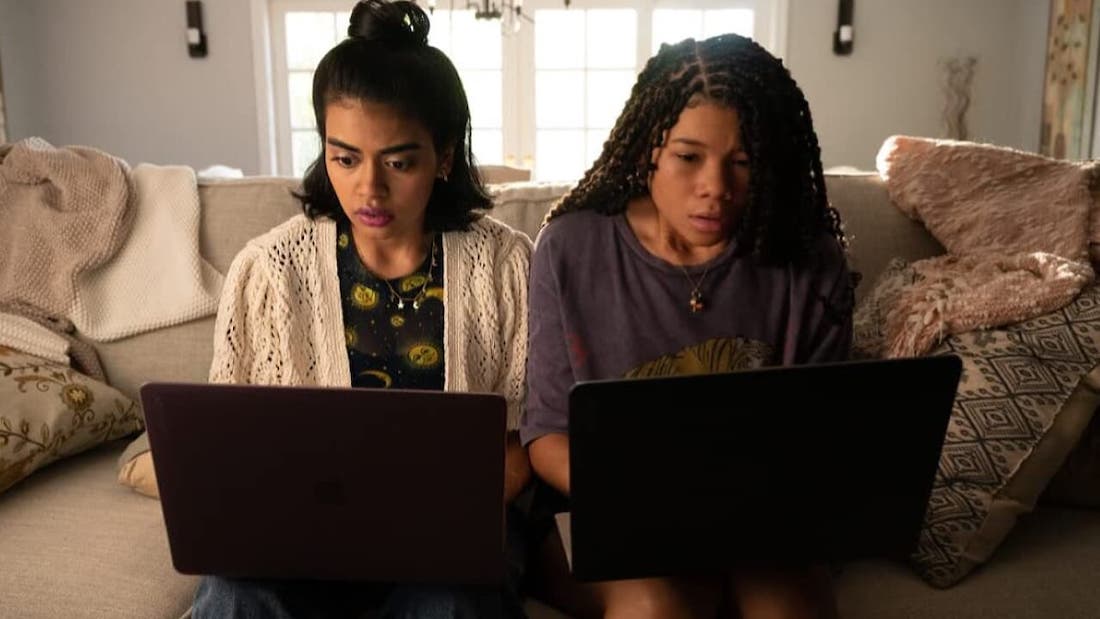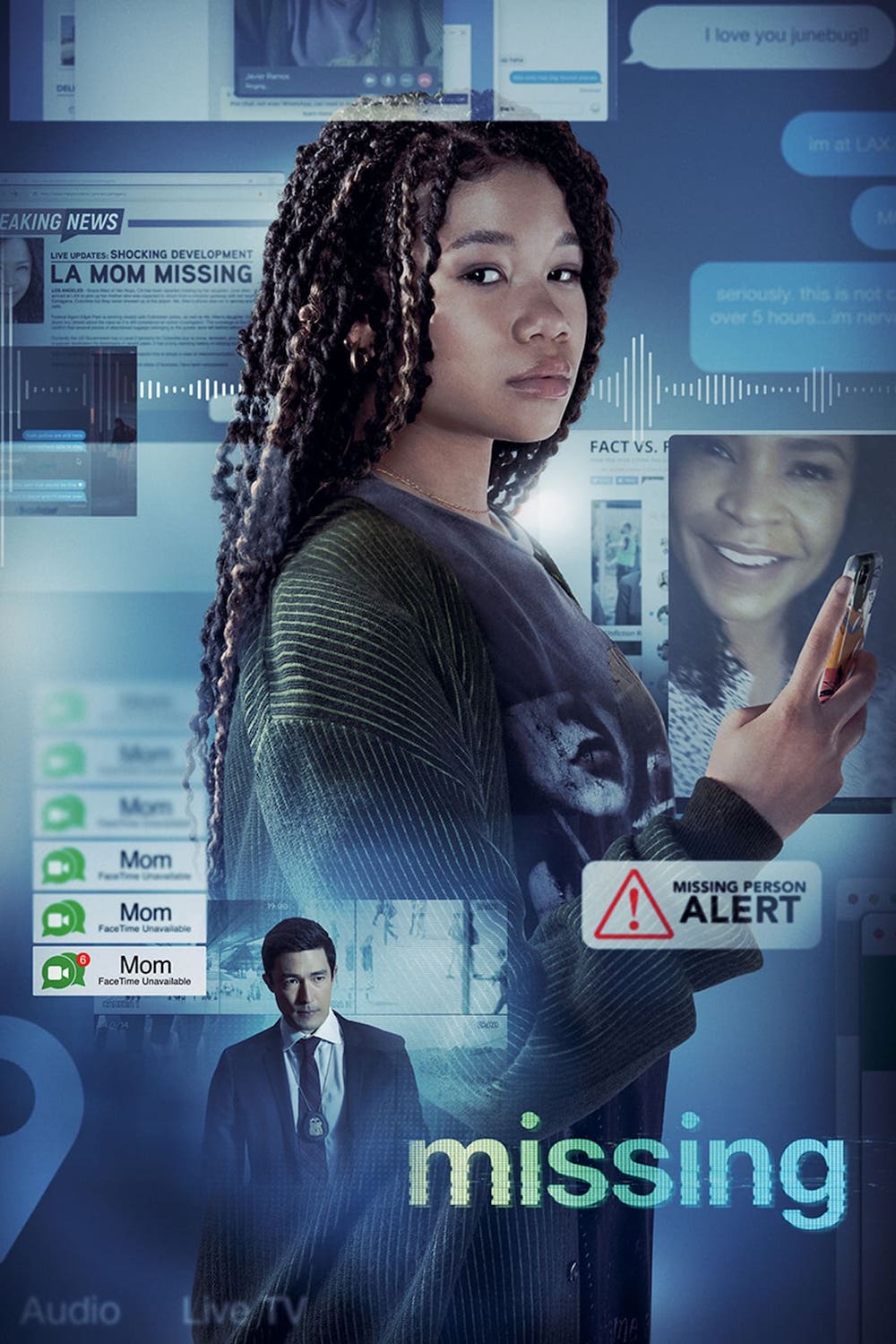MISSING (2023)
A teenage girl uses all the resources of the internet to search for her missing mother

A teenage girl uses all the resources of the internet to search for her missing mother


Surprisingly, it’s been less than a decade since “screenlife” movies—films told entirely through the content of computer and device screens—truly went mainstream. While there were precursors, like Megan is Missing (2011), it was Unfriended (2014) where this particular twist on the found-footage style scored its first major hit.
Unfriended was soon followed by the even more successful Searching (2018), and now some of the team behind that production have delivered a follow-up in Missing—a sequel only in the loosest sense of the word. Its writer-directors, Nick Johnson and Will Merrick, worked as editors on the earlier film.
Screenlife as a sub-genre may not last long; this style of filmmaking, which essentially uses the internet as the location for a drama to play out (rather than being about the internet as a subject) will, ironically, lose its distinctiveness as more and more of our real lives are encoded in digital images.

After all, in a world where almost everything that matters is captured as digital video and available to connected devices, there will be little difference between a movie purporting to show this footage and a movie made conventionally with non-diegetic cameras; the constraints which the style imposes on writers and directors will have evaporated.
Signs of this are already evident in Missing, particularly with its use of multiple security cameras toward the end, where the shot sequence is much the same as any film might offer. Similarly, the ubiquity of video-capable smartphones (and in Missing a smartwatch) has enabled screenlife movies to show almost anything, anywhere, while still plausibly claiming that the footage was recorded by characters within the fictional world.
We may in fact have reached peak screenlife: the point where the style is still different enough to command interest, yet both filmmakers and audiences are technologically literate enough to not be dazzled by the digital environment and to concentrate on the characters and narrative instead.

And Missing is—if not particularly ambitious—a fine example, being a well-crafted story which builds intrigue effectively, adds minor pleasures through its imaginative use of technology to move things along, but never relies on it as a gimmick. It’s all reasonably credible, too, once allowances are made for the needs of the plot; I only spotted one obvious blooper (a tech-savvy character unnecessarily copies some text which she would have known was already in her clipboard), though some viewers might find the poor password discipline of another character a bit too convenient.
Though Missing does not continue the storyline of Searching, there are strong resemblances, and like the earlier film it is committed to the idea that family bonds are the ones which matter above all others. It’s even, indeed, rather sentimental and earnest, though not overwhelmingly so.
Where Searching dealt with a father trying to find his daughter with the help of a detective, here we have daughter June (Storm Reid) searching for her mother Grace (Nia Long) with the help of Colombian odd-job man Javier (Joaquim de Almeida).
Grace went on vacation to Colombia with her new boyfriend Kevin (Ken Leung), or so we think, leaving 18-year-old June at home in Los Angeles. Her father James (Tim Griffin) is someone she barely remembers, though she often watches a video in which he plays with her as a little girl; an ominous nosebleed in that video, and a series of browser bookmarks about brain tumours, tell their own story.

When neither Grace nor Kevin returns from their Colombian trip, June starts to search for them, enlisting the help of Javier on the ground in the city of Cartagena. All his interactions with June are via video calls, shown from her perspective—which of course means that, while she’s largely limited to searching the web and hacking into e-mail, he can conduct investigations in the physical world that still technically qualify as screenlife content.
As well as Javier, June is also assisted by her mum’s lawyer friend Heather (Amy Landecker) and her own bestie Veena (Megan Suri). But it’s always June at the centre of the tale—screenlife films are by their very nature not suited to ensemble casts—and Reid, an actor only slightly older than her character, does a fine job in suggesting a young woman caught between childhood and adulthood. She’s confident, sassy, and smart, but she can also be scared and sulky.
De Almeida, in fact Portuguese rather than Latin American, is also persuasively real as the unassuming handyman who proves to be a creative sleuth, and it’s nice that Missing casts a somewhat dumpy middle-aged man rather than a handsome teen in the role. Other cast members don’t have much to do; Landecker (Showtime’s Your Honor) is underused, although Griffin compensates for his limited screen time by turning the intensity up several notches.

Missing clearly isn’t claiming to be a believable film in every detail—a real June would probably have got nowhere with her investigation—but it’s emotionally convincing, in large part thanks to Reid’s performance, as well as Long in the smaller role of her mother. Its depiction of June’s digital adventures is efficient and smooth, too, and though there are touches of pleasing cleverness it is never gee-whiz.
It’s an old-fashioned film at heart, anyway. This is a movie about a mother and daughter’s fight to reconnect, both literally and metaphorically, and it takes that relationship seriously. There’s some mild humour about teenage high jinks and adult dating, but absolutely none of the black cynicism of Eugene Kotlyarenko’s screenlife exercise Spree (2020), for example.
For all that Spree was fun, though, Missing is the better of the two movies. And it confirms that despite the screenlife style’s up-to-the-minute surface—and its probable fate as a short-lived phenomenon of the 2010s and 2020s— it’s versatile enough to tell real stories about real people as well as reflect a transient zeitgeist.
USA | 2023 | 111 MINUTES | 1.78:1 (BLU-RAY) • 1.85:1 (THEATRICAL) | COLOUR | ENGLISH • SPANISH


writers & directors: Nick Johnson and Will Merrick.
starring: Storm Reid, Joaquim de Almeida, Ken Leung, Nia Long, Tim Griffin & Amy Landecker.
